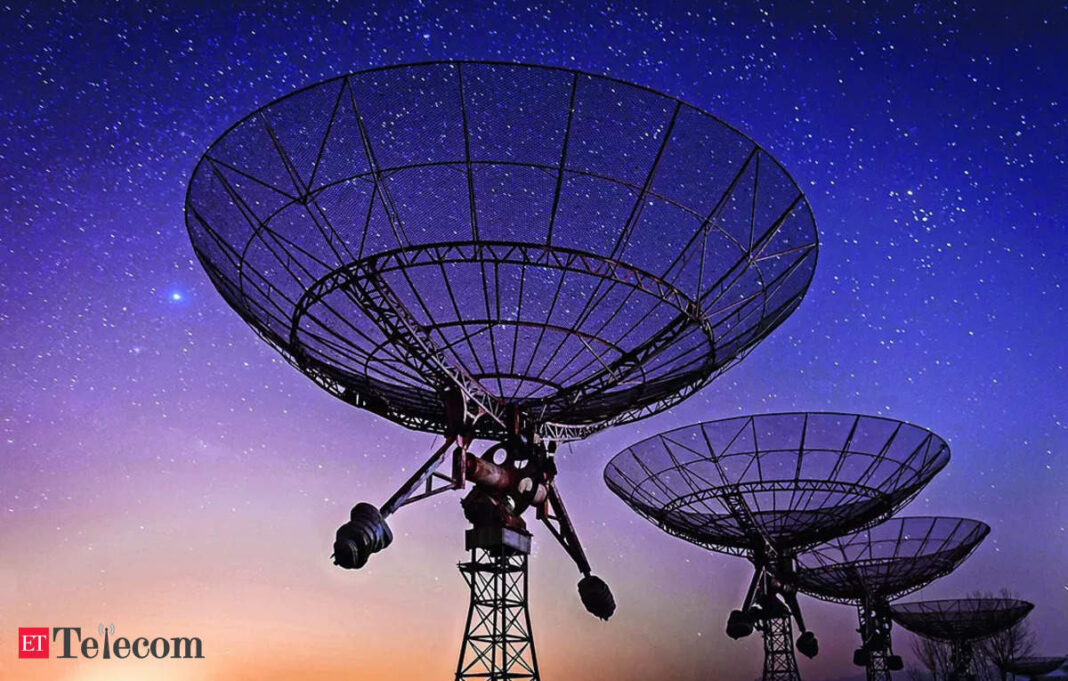In Short:
The Department of Telecommunications (DoT) has asked the regulator to set prices and terms for allocating satellite airwaves, as per the new Telecommunications Act. The Act requires spectrum for satellite services to be given without auctions, but the details are still to be defined. The government expects recommendations in a few months to notify the rules by year-end. The Act has provisions for spectrum utilization and sharing, but rules for satellite communication and other aspects need to be defined. Experts suggest future-ready regulations, especially with technologies like satellite connectivity evolving rapidly. Different companies have varying views on satellite spectrum allocation, with some supporting auctions and others preferring administrative allocation.
DoT Seeks Recommendations on Satellite Spectrum Pricing and Allocation Terms
The Department of Telecommunications (DoT) has reached out to the sector regulator to propose the pricing and terms for allocating satellite airwaves administratively. Under the newly enforced Telecommunications Act, 2023, satellite spectrum, including for global mobile personal communication by satellite services (GMPCS) permit-holders, must be allotted without auctions. However, the specific terms and pricing for spectrum usage have not been defined yet.
Consultation Process in Progress
“We have received a reference from DoT regarding the satellite spectrum for defining the terms and conditions as well as pricing. We will provide recommendations after consulting with the stakeholders,” revealed a senior Telecom Regulatory Authority of India (Trai) official to ET on the condition of anonymity. The government anticipates receiving the recommendations in a few months to finalize the rules by the end of this year.
The Telecommunications Act, enforced on June 26, mandates notifying all rules and provisions within 180 days. Various aspects of the Act, such as right of way, spectrum sharing, and trading, have already been put into action by the government.
Defining Satellite Spectrum Rules
However, certain rules related to spectrum allotment, including satellite communications, intercepting calls and messages, and collecting biometric data, still need to be defined. According to officials, administratively allotted spectrum for satellite services is intended solely for point-to-point connections and not for direct service transmission to end consumers. The forthcoming rules are expected to outline the specific conditions for satellite spectrum usage, pending Trai’s recommendations.
Future-Focused Regulations
Experts emphasize the need for futuristic regulations as technology rapidly evolves. For instance, Apple’s latest iPhone models already support satellite connectivity in select countries. Nevertheless, the availability of this service in India hinges on the government’s policy decisions.
Diverse Perspectives on Spectrum Allocation
While some like Reliance Jio prefer auctions for satellite spectrum allocation due to advancing technology, others such as Bharti-backed Eutelsat OneWeb advocate for administrative allocation. The Telecommunications Act, however, mandates administrative allocation for satcom players, paving the way for players like Eutelsat OneWeb, Starlink, Project Kuiper, and Reliance Jio’s satcom joint venture with SES to receive spectrum through this route.





